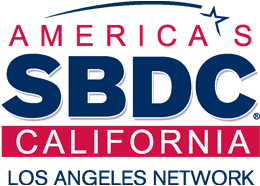September 15, 2011
By Rieva Lesonsky
Did you know that going green can benefit your small business in more ways than one?
Implementing eco-friendly practices at your company not only saves you money, but can also attract customers.
“Being green has become one of the most highly sought-after competitive advantages in business,” says SBDC Business Advisor Rola Halawanji. “According to recent surveys, over half of all consumers factor in the sustainability and earth-friendliness of a product or service when making a purchasing decision.”
While many small business owners think going green is complex or costly, Halawanji says the opposite is true. “By looking through a green lens, you can accomplish small and simple steps almost immediately, then build from there with actions that cost nothing or very little to apply,” she explains.
Take these simple steps to get started:
- Switch out standard light bulbs for energy-saving ones. Halawanji says small business owners who do this report savings of 40 to 60 percent on their electric bills.
- Reduce energy use. “Shut down electronics at night, turn off overhead lights during daylight hours and open windows instead of running air conditioning,” Halawanji suggests.
- Shut it down. Plug electronics into power strips that turn on and off. At the end of the day, simply turn off the power strip to power down all the appliances at once.
- Recycle. If your city doesn’t provide recycling pickups for paper, cans or bottles, see if an employee is willing to take these products in (let them keep the money).
- Recycle ink cartridges. “Most office supply stores now take back ink cartridges and give you discounts when you purchase new ones,” notes Halawanji.
- Print less. “A typical office worker uses about 10,000 sheets of paper per year,” says Halawanji. Slash that amount by using software such as Greenprint, FinePrint and HP Smart Web Printing to eliminate waste; printing on both sides of paper when possible; using eco-friendly fonts such as Arial Narrow or ecofont; and using the Print Preview and Shrink to Fit functions to print only what you need.
- Don’t print at all. Instead of saving documents in file cabinets, Halawanji suggests using PDF formatting and scanners to digitize data for storage.
Once you’ve taken small steps, Halawanji says, the next step is investing in energy-efficient office equipment, heating systems and air conditioners. Look for Energy Star certified products, and “check out incentive programs and rebates available through the utility and local city government, as well as state and federal agencies,” she advises.
If you may want to “go green” when it comes to the suppliers and vendors you use, Halawanji suggests you start by reducing the amount of raw materials and packaging you buy. “Avoid buying goods that actively damage the environment such as non-rechargeable batteries,” she says. “If you use raw materials that are not sustainable, consider substituting recycled or sustainable alternatives.”
How can you find green manufacturers and retailers?
While there isn’t one definitive list, Halawanji says the Global Ecolabelling Network website; Fair Trade CertifiedTM website ; IFAT website and Global Organic Textile Standard website can provide listings of accredited suppliers in your industry.
At what point can you market your business as “green?”
If you source green or ethical raw materials, business supplies, finished goods or equipment, you may be able to claim some “green” status — but Halawanji cautions it’s crucial to back up green claims with proof. There are many green accreditation options; Halawanji suggests considering what types of accreditation will appeal to your customers and asking your trade association about options in your industry (see the Trade Association Forum website).
“If you put your mind to it,” says Halawanji, “you can find lots of ways to make your business greener.” And that helps not only your business, but also our planet.
Rieva Lesonsky is founder and President of GrowBiz Media, a media company that helps entrepreneurs start and grow their businesses. Before launching her business, she was Editorial Director of Entrepreneur Magazine. Follow Rieva at Twitter.com/Rieva, read her blog at SmallBizDaily.com, and visit her website SmallBizTrendCast.com to get the scoop on business trends and sign up for free TrendCast reports.






